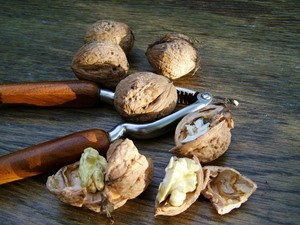According to the Walnuts and Healthy Aging (WAHA) study presented at a health conference in San Diego this week (Experimental Biology 2016), daily consumption of walnuts has a lot of positive effects on age-related issues.
The 2-year clinical trial was conducted by the Hospital Clinic of Barcelona and the Loma Linda University. They tested 707 healthy older adults that were split into two groups – one ate walnuts, while the other at none. After a year, both groups showed similar changes in weight gain, triglycerides and HDL (good) cholesterol but the group that ate walnuts had a significant decrease in the LDL (bad) cholesterol.
This initial results show that having walnuts on your daily diet can definitely keep your blood cholesterol levels at bay. We all know that uncontrolled cholesterol levels can cause deadly diseases such as Stroke and Diabetes.
Aside from the study that was presented at the conference, other researches also showed more positive effects that a daily intake of walnut can do to our health.
Gut Health
It was found that eating at least 1.5 ounces of walnuts a day can affect the human gut which decreases inflammation and cholesterol (Agricultural Research Service, USDA). These two are also known as indicators of different health issues; chronic inflammation specifically is the leading cause of diseases such as rheumatoid arthritis, asthma, tuberculosis and chronic active hepatitis.
Fights Cancer
Walnuts may help reduce the risk of prostate and breast cancer. A study showed that it reduced prostate cancer growth by 30-40% and slowed breast tumor growth by 50%.
Rich in Antioxidants
Walnuts contain powerful antioxidants which can slow down age-related deterioration and reduce inflammation. Other research also shows that walnut polyphenols may help prevent chemically-induced liver damage.
Improves Male Reproductive Health
Studies show that adding 75 grams of walnuts daily can improve sperm quality, including vitality, motility and morphology.
Keeps Brain Healthy
Walnuts contain neuroprotective compounds such as Vitamin E, Folate, Melatonin, Omega-3 and antioxidants which support brain health, and enhance cognitive and motor function in aging adults.











Pingback: The 6 Important Steps to Boost your Memory | Baby Boomer Talk